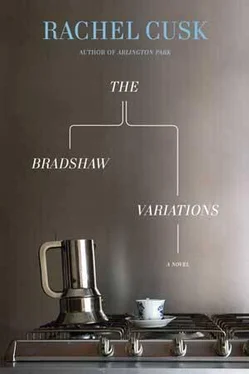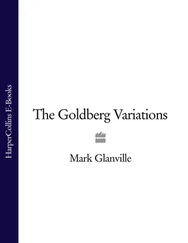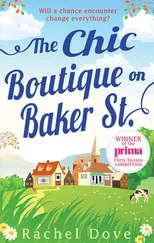‘What a sight,’ Tonie says, standing at the sitting-room door, laughing. Her laugh is full of hard, concealed shapes, like the files in her bag.
Thomas looks up. ‘I don’t know,’ he says. ‘I just can’t do it.’
She screws her face up, quizzical. ‘You don’t have to do it.’
‘I want to. Other people can.’
Without taking her jacket off, she begins to tidy up the room. It is true that Thomas is increasingly preoccupied by the mystery of other people’s abilities. He can hardly bring himself to listen any more to his Glenn Gould recordings, to his Clifford Curzon boxed set, to Feinberg’s indistinct, primordial account of Bach, so swamped does he become in the knowledge that these men are vastly more capable than himself. And it isn’t just music, either: the same feeling besieges him when he considers literature or painting, when he leafs through the photographs in his Encyclopedia of World Art , a feeling that is beyond jealousy, that is a sort of sulkiness. All these others, born just as he was, into the same world: they are all better, more capable, more exceptional than he is. Recently he took Alexa to the circus, and even the acrobat in his sordid spangled costume, even the hula-hoop girl in her greasepaint were more exceptional. The acrobat whirled around the half-empty tent on a rope, a force of pure plasticity. All his male stiffness was entirely subjugated: he could make his body do whatever he told it to. Yet Thomas cannot make his hands play the fugue. The gyrating hula-hoop girl span twenty silver rings around her casually outstretched foot, grinning with her painted mouth. She was an artist, in her way. She has something Thomas does not have, an ability.
How has it eluded him, art, when all these others have grasped it? What has he done wrong? He remembers the afternoons of his childhood, his mother there, his own determination to secure her approval and love, to get to her ahead of his brothers. And he succeeded. He studied the situation and turned it to his own advantage. It wasn’t particularly difficult. His brothers always seemed so distracted, so chaotic, their joys and satisfactions coming randomly, haphazardly, unplanned. Though all the same they came. When his mother cherished Howard or Leo it was for no reason that Thomas could identify. Thomas, thinking about his life, sees himself always grappling with a fixed creation, wrestling with it, turning it to his own advantage. Did he ever look at his mother, really look at her? Did he observe his brothers, people who were just as real as himself? He used to defend Leo against Howard, when they were children: he remembers deciding that this was the behaviour of a successful person, the defence of the weak against the strong, a kind of qualification, like a diploma. He remembers laying it at the feet of an unseen authority, his diploma. It didn’t make him like Howard less, or Leo more. It didn’t involve him personally. And his mother: the shape of her is all he remembers, the shape of what he wanted for himself. He would be unable to describe what she was like.
This is how art has eluded him, in the struggle to succeed at life. An artist, he supposes, dies to life, dies in that struggle, dies and is reborn. Tonie is moving around the room, bending and straightening. She too, he realises, knows what it is to create. She created Alexa: he remembers the way her old life died, went over the cliff and smashed itself on the rocks, unfinished; Alexa’s birth also the old Tonie’s death. And then something new struggling out of the wreckage, the new Tonie, this woman who stands here now in her work clothes, more alive than ever and full of dangerous energy.
‘Don’t do that,’ he says, watching her.
‘Someone has to do it,’ she says. ‘The place is a mess.’
It had occurred to him that they might go to bed, here in the afternoon. But it is clear that this is not a possibility. He sees that she is frustrated. She doesn’t want to be back at home, washed up on the domestic shore before her day has run its course. Her existence relies on the separation of one thing from another. She can never be whole again, having smashed herself on the rocks of creativity. It would drive her mad to find herself in bed with her husband when she would normally be at work. It isn’t that she thinks these things ought to be separate. It’s that they are separate, as the two halves of a broken plate are separate, as his right hand is separate from his left. But neither half can be anything on its own.
‘I was going to do it,’ Thomas says. ‘I was going to do it later.’
He looks at the room and sees its disorder. He sees that Tonie is wondering how he can live like this. She is looking at him as something totally separated from herself. It is possible that Tonie could betray him, betray him without conscience. The broken parts of her could neglect to correspond. They could go their different ways without a word.
‘I know,’ she says. She puts her hand to her forehead. ‘It just suddenly seems important. I don’t know why, but it does.’
He rises from the piano stool. He gathers up the music books that lie all around it on the floor and replaces them on their shelf. He collects the cups and plates — he has started having lunch up here, at the piano — and carries them down to the kitchen. There he finds more cups and plates and he gathers them, fetching and carrying, turning on the taps. Tonie appears: she has shed her jacket and rolled up her sleeves. She has an armful of things which she drops into the rubbish, one after another. Thomas finds dirty saucepans, roasting dishes, baking tins, and plunges them clanging into the foaming tumult of the sink. Tonie opens the cupboard and takes out the mop. Later he sees her washing down the shelves and doors. When he has finished the saucepans he cleans the cooker, involving himself more and more deeply in the intricacies of its plates and burners, losing himself in the black cavity of the oven. Presently, Olga returns. She comes down to the kitchen. She stands and stares.
‘What are you doing?’ she asks.
The next time Thomas looks, Olga has extracted the Hoover from the bowels of the understairs cupboard and is dismantling it with a screwdriver. She cleans the parts, reassembles it, revs it up. Thomas has moved on to the windows; Tonie is scrubbing the sills. The dishwasher is churning; the tap is dripping rhythmically into the polished sink. The thump and shriek of the Hoover recedes and comes back, recedes and comes back. Tonie dips and rinses her sponge in a bucket by her side, the water raw and slightly obscene-sounding, opening and closing around itself. His ears strain to order the noises. He hears the squeaking sound his cloth makes against the glass and he syncopates it, coming in on the Hoover’s off-beat. He feels the imminence of chaos. He feels it poised on the brink of dispersal, his creation; soon it will atomise into nothingness. There are footsteps, the sifting noise of a broom. The water closes on itself; the Hoover dies into silence. The end is coming — oh, the tension, the spurious tension of control! He understands that to create is to lose control, to become purely receptive. Yet how can he save what he has lost control of? His fingers fumble with the cloth and it falls to the floor. He bends to retrieve it; and it is there, crouching, that he hears Tonie empty the bucket, the suds and dirty water cascading into the drain, a long, low sound, perfectly measured. It gushes in his ear, the torrent; his tension is resolved. And then, coming up from the floorboards, the final vibration, the sound of Olga approaching. She has the withered yellow roses in her hands. Her footsteps grow louder, a last siege on the encroaching silence. She pauses; she waits. Then she thrusts them triumphantly into the bin, and slams shut the lid.
Читать дальше












